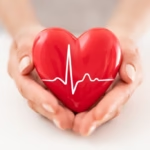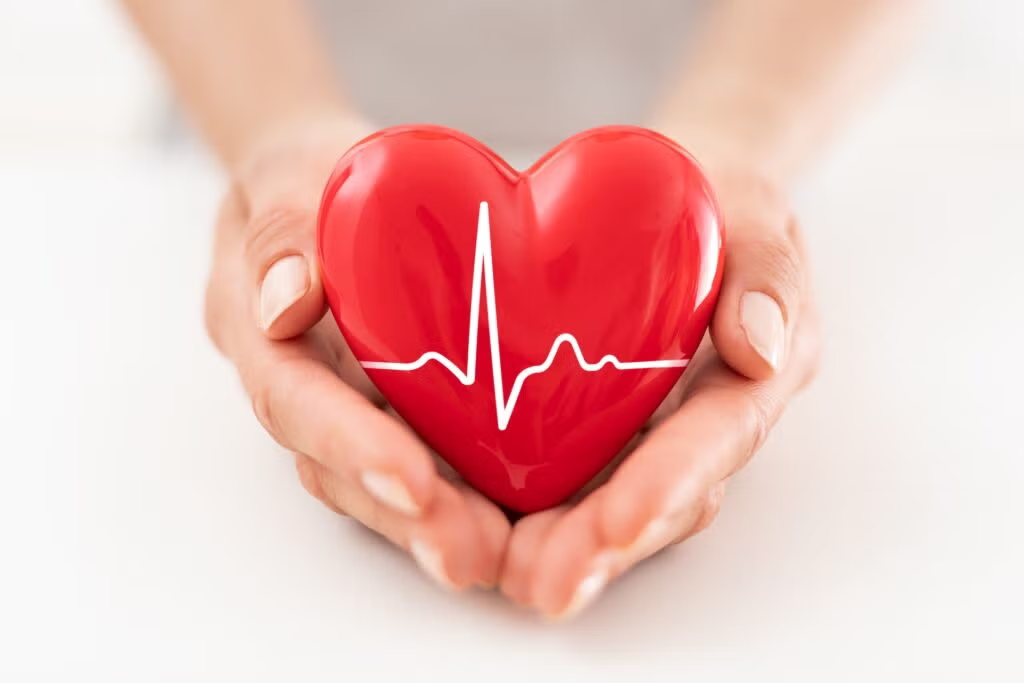Heart disease entails other problems that may happen to your heart including poor health of the blood vessels, valves, or rhythm of the heart. These problems are usually caused by such risk factors as hypertension, hypercholesterolemia, smoking, diabetes, and just poor lifestyle in general. For more research you can also visit World Health Organization.
Among the heart conditions that are common are:
- Coronary artery disease: This is clogging of arteries of the heart.
- Heart failure: The heart is not able to pump well.
- Arrhythmias: Arrhythmias are irregular pulses.
- Valvular heart disease: Heart valves that are bum.
Heart Disease Symptoms:
It is based on the kind of heart disease, it is symptomatic. The signs of the heart disease in blood vessels: Therefore coronary artery disease is a typical heart disease which affects the larger blood vessels which supply the heart muscles. Thereby, coronary artery disease symptoms might vary in both sexes. An example is that men tend to experience chest pain. Shortness of breath, nausea and extreme fatigue are the other symptoms that may accompany chest discomfort especially in the females. Coronary artery disease may be treated by symptoms:
- Chest pain, chest tightness, chest pressure and chest discomfort (angina)
- Dyspnea shortness of breath
- Soreness to the neck, jaws, throat, upper belly, area or back
- Experiencing pain, numbness, weakness, or gone cold in the legs or hands or arms in cases that the blood vessel in them is narrowed
Heart Arrhythmias:
The heart can beat at a rate that is too fast, too slow or it can be irregular. Therefore, the symptoms of heart arrhythmia may be:
- Shortness of brcely pain or discomfort
- Dizziness
- Fainting
- Flutter chest
- Lightheadedness
- Increased heart beat
- Shortness of breath
- Dull bloo d pressure
Congenital Heart Disease:
Severe hereditary diseases are normally detected at birth. Therefore, among symptoms of congenital heart defects in children, they might involve:
- Pale gray or blue lips or color on the skin
- Edema of the legs, abdomen or of the eye sockets
- In a baby, dyspnea on feeding, with inadequate growth
- Becoming short in breath very easily in an exercise or an activity
- Gets tired easily when exercising or moving around
- Swelling of the feet, ankle, or the hands
Cardiomyopathy:
The early forms of cardiomyopathy might not result in distinguishable symptoms and could include:
- Lightheadedness, fainting and dizziness
- Fatigue
- Feeling out of breath when you are moving or resting
- Shortness of breath at night when attempting to sleep, or in this case waking up in shortness of breath
- Irregular beating in the heart: The above is characterised by the feeling of rapid, pounding and fluttering
- Legs, ankle or feet that are swollen
Valvular Heart Disease:
Heart valve disease is also referred to as valvular condition. Symptoms of heart valve disease depend on which valve is not functioning correctly, but in general include:
- Chest pain
- Fainting
- Fatigue
- Irregular heartbeat
- Shortness of breath
- Puffy feet or ankle
Thereby Endocarditis is an infection that afflict the heart valves and inner lining of the heart chambers and heart valves. Symptoms of endocarditis development may involve:
- Persistent or dry and chronic cough
- Fever
- Alteration of heart beat
- Difficulty with breathing
- Sometimes skin rashes or spots
- The distension of the legs or belly parts
- Fatigue or debilitation
Precursors of Heart Disease:
It depends on the type of heart disease, which it has caused. Hence there exist varieties of the heart diseases. The working of the heart:
- In order to comprehend the causes of heart ailment it would be useful to know how the heart functions.
- The heart has two chambers; two upper chambers (atria) and two lower chambers (ventricles).
- The right hand side of heart pumps blood via blood vessels into the lungs.
- When in the lungs blood acquires oxygen, which gets back to the left part of the heart by means of the pulmonary veins.
- The side in the left heart will then pass the blood through the aorta and externally to the rest of the body.
Heart Valves:
There are 4 heart valves namely the aortic, mitral, pulmonary and tricuspid, which ensure that the blood flows in the right direction. The valves are single directional and open only when necessary. That is why valves have to open fully and close very tightly without leakage.
Heart Beats:
And in a beat and relaxation a heart will pound. In case of contraction, lower chambers of the heart are squeezed. This medical procedure compels the go-through of blood to the lungs and the remainder of the body. When the heart is at rest the ventricles are filled with blood which drains to the top part of the heart.
Electrical System:
This electrical system maintains the heart in beating. Each heartbeat oversees the non-stop process of innermost circulatory organ exchange of oxygen saturated blood with blood that is poor in oxygen. This trade makes you living:
- Electrical impulses begin with the upper right chamber
- The impulses pass different channels into the lower chambers of the heart. This makes the heart tell to pump.
Factors that Cause Coronary Artery Disease:
The most frequent causes of coronary artery disease are a build up of fatty plaques in the arteries. Poor diet, lack of exercise, obesity and smoking are so risk factors. Since healthy lifestyle options can assist in reducing chances of atherosclerosis. Ordinary reasons that lead to arrhythmia or may cause them are:
- Cardiomyopathy
- The heart condition coronary artery disease
- Diabetes
- Drug misuse
- Emotional stress
- Birth defects of the heart Congenital heart defects
- High blood pressure
- Smoking
- Disease of valves in the heart
- Consumption of some drugs even those purchased over the counter and herbs and supplements
What Causes Congenital Heart Disease?
A congenital heart disease takes place when a baby is developing in the womb. The defect is a form of congenital heart defect and it takes place during the development of the baby heart approximately one month after conception. It alters the circulation of blood in the heart. Since there are medical conditions, medications, and genes that put a patient at great risk of having a congenital heart defect.
Cardiomyopathy:
Cardiomyopathy causes are specific to the type of conditions:
- Dilated cardiomyopathy
- Hypertrophic cardiomyopathy
- Restrictive cardiomyopathy
The causes of Heart Infection:
Endocarditis is a heart infection, which gets caused due to germs that enter the heart or heart valves. Since the most popular reasons of heart infection are:
- Bacteria
- Viruses
- Parasites
The Heart Valve Disease is Caused By:
The causes of heart valve diseases are many. Due to the fact that some individuals are born with heart valves disease. Other diseases that can cause heart valve disease are:
- Rheumatic fever
- Infections
- Connective tissue diseases
Heart Disease Risk Factors:
The risk factors include:
- Age
- Sex
- Family history
- Smoking
- Unhealthy diet
- Hypertension
- High cholesterol
- Diabetes
- Obesity
- Sedentary life style
- Stress
- Its dental health was miserable
Problems of Heart Disease:
Therefore the complications are as follows:
- Heart failure
- Heart attack
- Stroke
- Aneurysm
- Peripheral arterial disease
- The unwarranted sudden cardiac arrest
Heart Disease Prevention:
Lifestyle change similar to that applied to control it can also be very useful in preventing it. Then here are some heart healthy suggestions:
- Don’t smoke
- Consume the lowsalt diet,low saturated fat diet
- Physically active as much as possible (30 minutes at least 5 days a week)
- Be in a healthy weight.
- Less and easy to balance stress
- High blood pressure, high cholesterol and diabetes control
- Have good sleep. Adults are supposed to have 7 to 9 hours on a daily basis.
Diagnosis of Heart Disease:
It is diagnosed using so many various tests. Tests which can be done to diagnose it include:
- Holter monitoring
- Echocardiogram
- Exercises are stress test or stress
- Cardiac catheterization
- The CT scan of the heart
- MRI scan on the heart
Heart Disease Treatments:
Its treatments is based on its cause and kind of the heart damages. Since one of the aspects of treatment should be a healthy lifestyle habits which include a good diet consisting of low fat and low salt food, exercise, sleep and avoidance of smoking. Treatment and the best medicine to the heart may be:
- Medications
- Surgery
- statins
- Angiotensin-converting enzyme
- Calcium blockers
- Beta blockers
- Nitrates
- Antiplatelet agents
- Anticoagulants
- Other procedures
FAQ’s
Early sings of heart disease in women?
The symptoms of heart disease in women may be unobtrusive and unlike those of the men. Major symptoms may be:
- Unusual fatigue
- Difficulty in breathing.
- Stomach pain, indigestion or nausea
- Neck, jaws, throat, upper back, or arm pain
- Lightheadedness or dizziness
- Cold sweats
Will an ECG unblock an artery?
ECG may indicate or reveal presence of blocked arteries in case it is likely to cause heart attack or strain the heart to great pressures. Nonetheless, it does not immediately have the ability of directly viewing the obstructions. The diagnosis requires other tests such as a CT coronary angiogram or cardiac catheterization.
A stress test demonstrates how your heart functions when it is put under pressure (physically) (or due to medication). It reveals:
What does a heart stress test indicate about the heart health?
- Blood flow: When testing is underway and your heart is working hard, blood should get everywhere. But being unable to give all the areas of the heart the appropriate amount of blood is an indication of the presence of blockages.
- Heart rhythm: A kind of abnormal heart rate occurring when stressed only.
- Exercise capacity: The reservation of your heart and body activity.
- Symptom cause: Whether the symptoms are related to the chest pain, shortness of the breath, or dizziness.
Which is better stent or bypass surgery?
On is not definitely the best or worse for all people; it is particular to oneself e.g. the best one can choose is depending upon parameters such as:
- The number and location of blockages: Bypass surgery works well better on multiple and complicated blockages particularly on the larger arteries. Stents are usually recommended when the blockages are less and simple.
- General health: Stenting is non-procedural and has a quick recovery hence appropriate in case of patients who might be unable to withstand significant surgery.
- Other conditions present: The bypass surgery can give better long-term results on patients with diabetes and multiple blockages.
- Emergency vs stable condition: Stents are normally the order of day when a heart sufferer had an emergency such as a heart attack and the neck was required to be opened up fast.
Both of the procedures are focused to restore blood flow, lessen the symptoms and enhance the quality of life. On your specific case, your doctor will present to you its risks and benefits.
What are the best exercises in case of heart disease?
They are in most cases the best exercises that a person with heart disease can partake in:
- Aerobic activities: Fast paced walking, swimming, biking (at stationary or light outdoor cadence) and light jogging (doctor authorized). These toughen up your heart and enhance circulation.
- Strong light training: With the help of light weight or band you can work on muscle strength and in turn facilitate better utilization of oxygen by your body.
- Flexibility and balance activities: Tendency to balance and stretch (yoga or Tai Chi) to enhance mobility and decreased fall risk.
Before any exercise program, it should always be discussed known a specialist in cardiac rehabilitation or the doctor. They will design a secure plan that depends on your condition and level of fitness.






